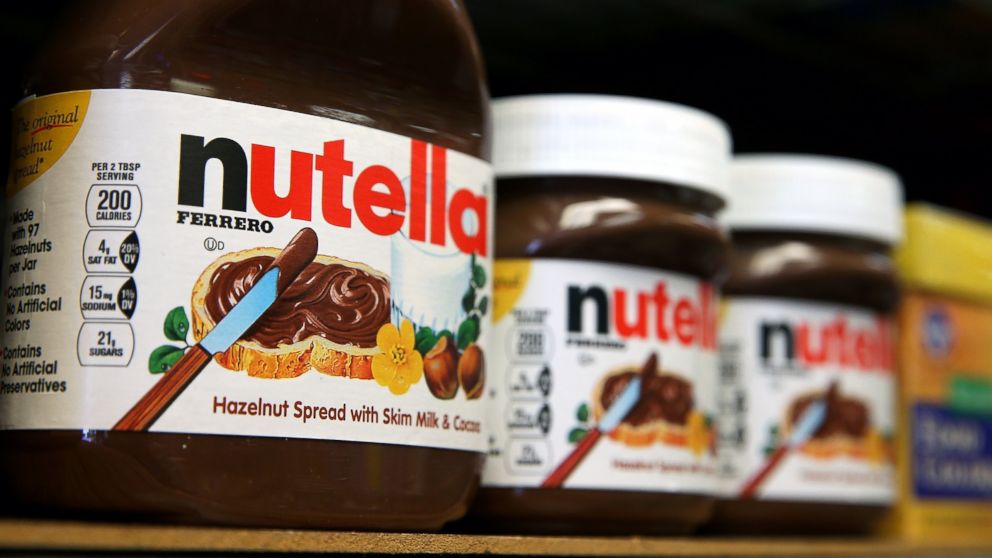How Real Is the Looming Nutella Shortage?
The Nutella scare may be the latest in a string of pseudo shortages.

— -- Chicken wings, limes and now Nutella: even in the wealthiest country in the world, many Americans get worked up over food shortage scares that pop up a few times a year.
But in most cities in the U.S., the rumors are usually more hype than fact.
How real is the reported threat to Nutella hazelnut spread? Somerset, New Jersey-based Ferrero USA, the company that makes and distributes the sweet stuff for its Italian parent company, says fans have no need to worry. That's in spite of the poor weather in Turkey, where approximately 70 percent of the world's hazelnuts originate, according to the Financial Times.
"Inclement weather last spring in Turkey has impacted this year’s hazelnut harvest," a spokesperson for Ferrero USA said in a statement to ABC News. "We are tracking this issue closely and there’s no foreseeable impact on the availability of Nutella. As always, we will maintain the high quality of the Nutella product that consumers know and love."
The price of hazelnuts has spiked more than 60 percent this year, according to the Washington Post, and Ferrero buys as much as a quarter of the world's hazelnuts.
Bourbon Industry in Largest Expansion Since End of Prohibition
Heineken Reports Sales, Profit Drop in First Half
Jenny McCoy, chef instructor at the Institute of Culinary Education, said she doubts any shortage may actually happen.
"Ferraro has been in the hazelnut product business for quite some time and I feel certain they've secured crops for their annual production needs. Being the consumer of 25 percent of the world's hazelnuts, they've been aware of this issue for many months sooner than the rest of us," she said.
Either way, any hazelnut shortage may be good news for small farmers, such as those in Oregon. McCoy said they are enjoying the increase in hazelnut market prices, and they grow "far more delicious hazelnuts" than those of Turkey.
"In the meantime, regular consumers, chefs and small food producers looking to purchase hazelnuts may see some difficulty if harvests are as low as predicted -- mostly because the costs will be too high for most budgets. I'll be curious to see if restaurant menus change and chef's consider other nuts instead," she said. "Perhaps it is time for a revitalization of the walnut."
Every day, businesses like Ferrero, which are dependent on food commodities, such as hazelnuts, are closely watching the prices of their ingredients.
Earlier this year, the price of limes more than doubled due to shortages from the produce's main exporter, Mexico. Rain and a bacterium affected harvests there, analysts noted. As concerns continued into the spring, restaurants turned to other citrus fruits to take its place, but not necessarily because they couldn't buy the fruit. Many businesses chose to pay higher prices to continue serving dishes with the fruit, or limited them on an as-needed basis.
Last year, it wasn't weather, but strong demand that led to "fears" of a chicken shortage before a heavy chicken-wing weekend: the Super Bowl. The National Chicken Council says about one billion chicken wings can be consumed during the Super Bowl. Fortunately, the wing scare ended up as hype.
Rising almond prices also scared health nuts last year, due to a shortage of honey bees that influenced lower almond production levels in California.
When there was mild hysteria over the price of avocados in January, a spokesman for the restaurant chain Chipotle told ABC News that prices had increased, but the company didn't stop serving guacamole then, nor in 2011, when there was a similar price hike.
Chipotle Says Don't Worry, Your Burrito Bowls Are Safe From Climate Change
"The sky is not falling," Chris Arnold, a spokesman for Chipotle, told ABC News at the time.




